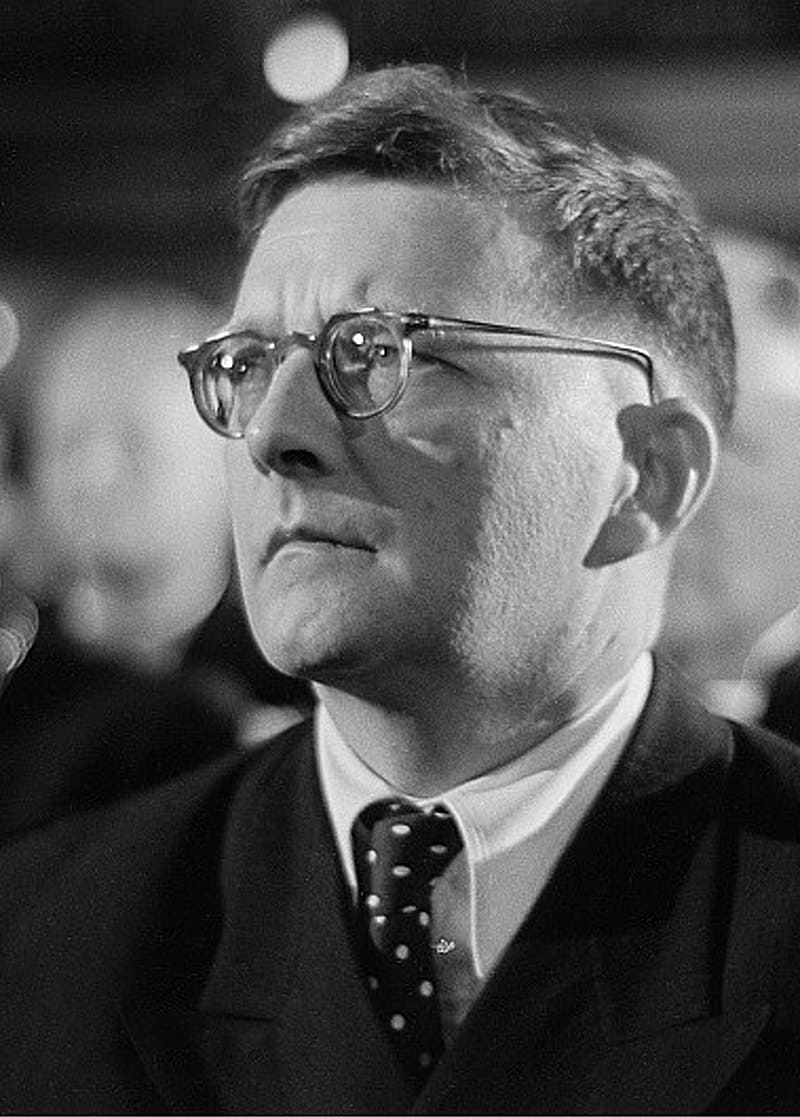Dmitri Shostakovich
SOVIET COMPOSER AND PIANIST
Personal Life
Born during the tail end of Imperial Russia on the 25th of September, 1906, Shostakovich was the second of three children to Dmitri Shostakovich and Sofiya Kokoulina. He is of Polish descent via his paternal grandfather, who originally had the surname Szostakowicz. Bolesław Szostakowicz (his grandfather) was a Polish revolutionary during the so-called January Uprising of 1863-1864. He was exiled to the village of Narym in Russia in 1866 in the wake of the crackdown on revolutionaries that resulted from the assassination attempt on Tsar Alexander II.
Shostakovich entered the Petrograd Conservatory (now St. Petersburg Conservatory) in 1919, where he studied piano performance until 1923. He would also study composition there until 1925. Eventually, he would gain enough skill to participate in the Chopin International Competition for Pianists in 1927, where he received an honorable mention but made no immediate attempt to pursue a musical career as a virtuoso. Instead, he initially chose to limit his public appearances as a pianist to only performances of his own works.
Career
Shortly, Shostakovich would meet the conductor Bruno Walter. He was so impressed by the young composer’s First Symphony that he would go on to conduct it at its premiere in Berlin, Germany in 1927. Another composer, Leopold Stokowski, would also be impressed, thereby bringing the work to its U.S. premiere in Philadelphia a year later. It was also Stokowski that would make the symphony’s first recording.
It was also in 1927 that Shostakovich would write his Second Symphony, which is largely a patriotic pro-Soviet piece. But due to its experimental nature like his Third Symphony, it didn’t experience the same critical acclaim as his first. 1927 was also the year when Shostakovich befriended the polymath Ivan Sollertinsky, who he’d remain close friends with until the latter’s death in 1944. It was Sollertinsky who introduced the composer to Mahler’s works, which would go on to strongly influence Shostakovich’s Fourth Symphony and onward.
Since he lived at the height of the Soviet Union (and due to his growing popularity as a musician), he would have to contend with the iron hand of Joseph Stalin. He demanded that Music be written in a direct and popular style, while also banning the likes of avant-garde music and jazz in 1932. While Shostakovich didn’t experience immediate backlash from the government, it was devastating when it came. According to sources, Stalin was infuriated at what he heard after attending a performance of Lady Macbeth of the Mtsensk District in 1936 that he officially condemned the opera and its creator. Shostakovich would be unceremoniously attacked by state press, causing him to withdraw the opera and his still unperformed Symphony No. 4.
Shostakovich would still outlive Stalin, and would eventually go on to create more works without the fear of government reprisal. Though it was never truly known if he was actually loyal to the communist regime, or was a closet detractor.

Did You Know?
Shostakovich was a close friend of the British composer Benjamin Britten, with whom he dedicated his Fourteenth Symphony.

Dmitri Shostakovich Recordings
Quick Guide...
Music Lessons



